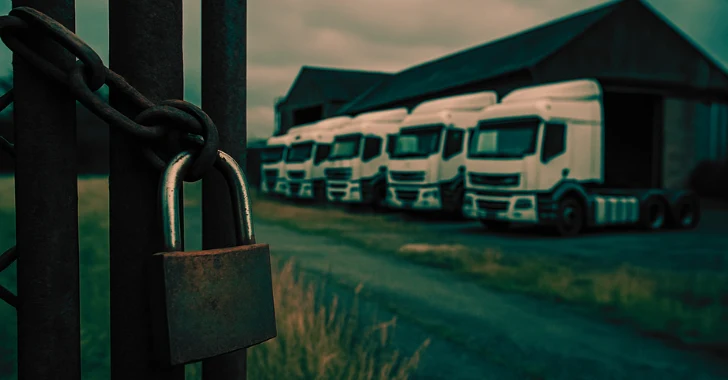Most businesses struggle to survive beyond their fifth year—statistics show that around half of small companies fail within that time frame. That’s why the story of KNP Logistics Group (formerly Knights of Old) was so remarkable. For more than 158 years, the UK-based transport company thrived, operating a fleet of 500 trucks nationwide. Yet in June 2025, all it took was one weak, easily guessed password to erase more than a century and a half of business history in a matter of days.
A Simple Entry Point with Devastating Impact
The attack on KNP came from the Akira ransomware group, who didn’t need sophisticated exploits or phishing campaigns. Instead, they leveraged a weak employee password—lacking multi-factor authentication (MFA)—to breach the company’s internet-facing systems. Once inside, they deployed ransomware across the entire infrastructure.
To ensure maximum damage, the attackers also wiped out backups and disaster recovery systems, leaving the company with no way to restore operations without paying a ransom demand of roughly £5 million—a sum the business could not afford.
Despite having industry-standard compliance measures and cyber insurance in place, KNP was unable to recover. Within weeks, all operations halted, 700 employees lost their jobs, and a business that had endured for nearly two centuries was gone.
The Password Problem That Won’t Go Away
The KNP incident is far from isolated. Research by Kaspersky shows that 45% of compromised passwords can be cracked in under a minute. Weak credentials remain one of the biggest open doors for cybercriminals, and when a single lapse exposes an organization, the consequences ripple far beyond IT.
The story is a stark reminder that basic security hygiene—like enforcing strong passwords and MFA—can make the difference between continuity and collapse.
Beyond Financial Loss: The Human and Reputational Toll
The destruction of KNP highlights how ransomware is not just a technical or financial problem. It carries human costs, displacing employees and impacting communities. Even organizations that survive such incidents face lasting reputational damage, regulatory scrutiny, and potential legal liabilities.
According to UK government data, nearly 19,000 businesses in the country experienced ransomware attacks in the past year, with average ransom demands reaching £4 million. Criminal groups are making attacks more accessible through ransomware-as-a-service models and increasingly rely on social engineering tactics to bypass defenses.
Building Resilient Cyber Defenses
The collapse of KNP underscores the urgency of strengthening identity and access management strategies. To avoid becoming the next cautionary tale, organizations should:
- Enforce strong password policies: Block weak and breached passwords, and promote the use of long, complex passphrases. Tools like Specops Password Policy continuously scan Active Directory against known compromised credentials.
- Enable multi-factor authentication (MFA): Add an essential layer of defense against credential theft. Solutions such as Specops Secure Access help prevent breaches and support compliance with regulatory and insurance requirements.
- Adopt zero-trust and least-privilege models: Limit what attackers can do once inside the network. Assume compromise and validate every access request.
- Isolate and test backups regularly: Functional, secure backups often determine whether a business can survive a ransomware event.
Final Thoughts
The downfall of a 158-year-old enterprise caused by a single password should serve as a wake-up call for every organization. Cybersecurity failures have very real consequences—on people, businesses, and entire industries. Strengthening your defenses today costs far less than the price of rebuilding after a catastrophic breach—if recovery is even possible.
Source: https://thehackernews.com/2025/09/how-one-bad-password-ended-158-year-old.html

 Español
Español













